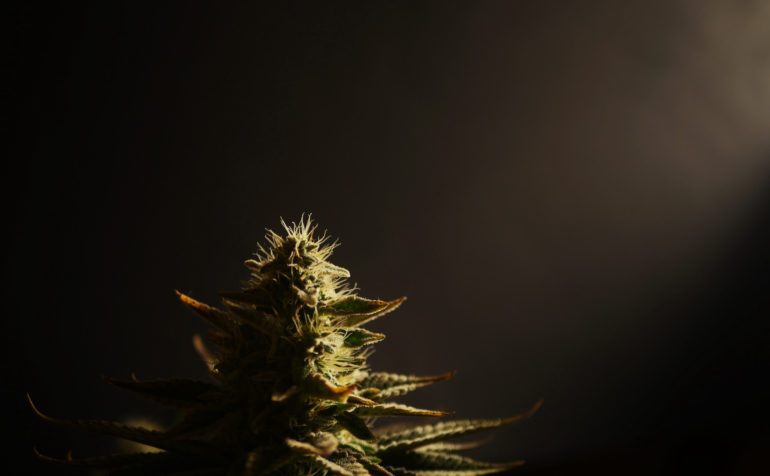With delta-8 THC being restricted or banned in 19 US states, including New York, Colorado, and Alaska, what’s to come of delta-8 businesses and consumers?
Our survey shows 117 delta-8 users across the US are concerned with the impact prohibition has on the industry, especially small delta-8 businesses and the customers who rely on their products as alternatives to conventional pharmaceutical drugs. These concerns are more than valid.
Delta-8 businesses suffer, revenue drops dramatically, and job losses occur almost overnight. Some companies also experience police raids.
Meanwhile, consumers who use delta-8 products for medicinal or recreational purposes are unable to legally get their hands on them, causing a surge of illegal, unregulated black market knock-offs. Those who don’t risk engaging in black market activity might begin using pharmaceutical drugs, which can result in dependency, addiction, or overdose.
KEY FINDINGS
- Delta-8 is one of the fastest-growing cannabis trends and therefore bans outright hurt independent businesses, as well as most surveyed customers
- 53% of cannabis users say banning delta-8 hurts small businesses and the industry as a whole, impacting revenue, profit, and jobs
- Banning delta-8 will affect survey respondents who use it for anxiety, stress, and depression (58%), pain and inflammation (49%), and insomnia and sleep disorders (40%)
- 50% of survey respondents believe US states should instead regulate delta-8 the same way as marijuana, 45% say it should be regulated the same way as hemp CBD, and 8% want it banned until further research is published
Expanded Summary
Consumer concern over delta-8 prohibition affecting small businesses
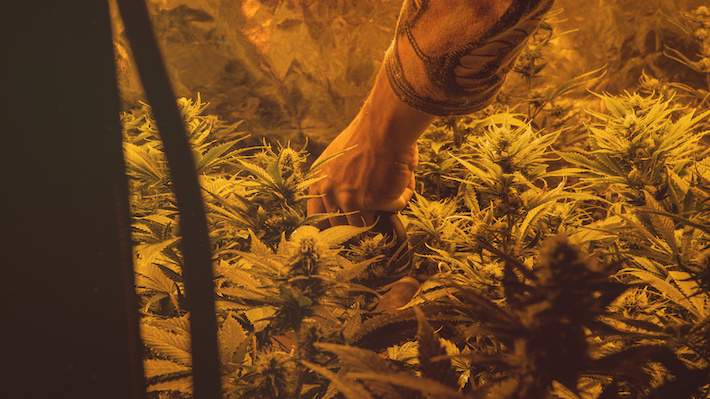
Delta-8’s popularity exploded in the latter half of 2020 and continued to rise throughout 2021. New Frontier Data estimated the total number of delta-8 retail sales exceeded $10 million in 2020, placing it as the fastest-growing and most popular cannabis product in the US, disrupting the entire hemp market in the process.
However, with 19 US states now restricting or banning delta-8 products, consumers are concerned about rising prohibition in North America and how it’s affecting the industry, especially small businesses.
According to our recent survey, the majority of US cannabis users believe delta-8 prohibition across the US hurts the industry. Over 53% of respondents who smoke cannabis believe statewide delta-8 bans cripple small businesses currently selling delta-8, impacting sales, profit, jobs, and consumers alike.
Does delta-8 prohibition negatively affect small businesses?
Delta-8 prohibition across 19 US states has and still is negatively affecting small businesses.
Texas, where delta-8 temporarily fell victim to strict prohibition, saw businesses unable to sell delta-8 products in fear of severe legal consequences, many of which were left sitting on millions of dollars worth of unsellable inventory. Worse still, police raids in Kentucky, Georgia, and other US states became frequent, causing outcry among business owners and hemp organizations.
CBD American Shaman, a Houston-based delta-8 vendor, risked losing 40% of its overall sales, while 20 other Texan delta-8 stores CBD Oracle recently interviewed could have lost over 60% of their business revenue. Similarly, delta-8 vendors in New York suffered the same fate when the state banned the sale, distribution, and production of delta-8 products.
Prohibition causing businesses to lose 58% of customers using delta-8 for stress, anxiety, and depression
Not only do delta-8 businesses lose out on valuable profit and revenue, but they also risk losing customers who use delta-8 products as an alternative treatment to prescribed medications. Our survey shows over 58% of delta-8 users consume delta-8 products as an alternative treatment for stress, anxiety, and depression, while 49% use it for pain and inflammation, and a further 40% consume it for insomnia and other sleep disorders. The remaining respondents (45%) consume delta-8 products simply for recreational purposes.
Prohibition also negatively affects delta-8 users and could create potential pharmaceutical dependency
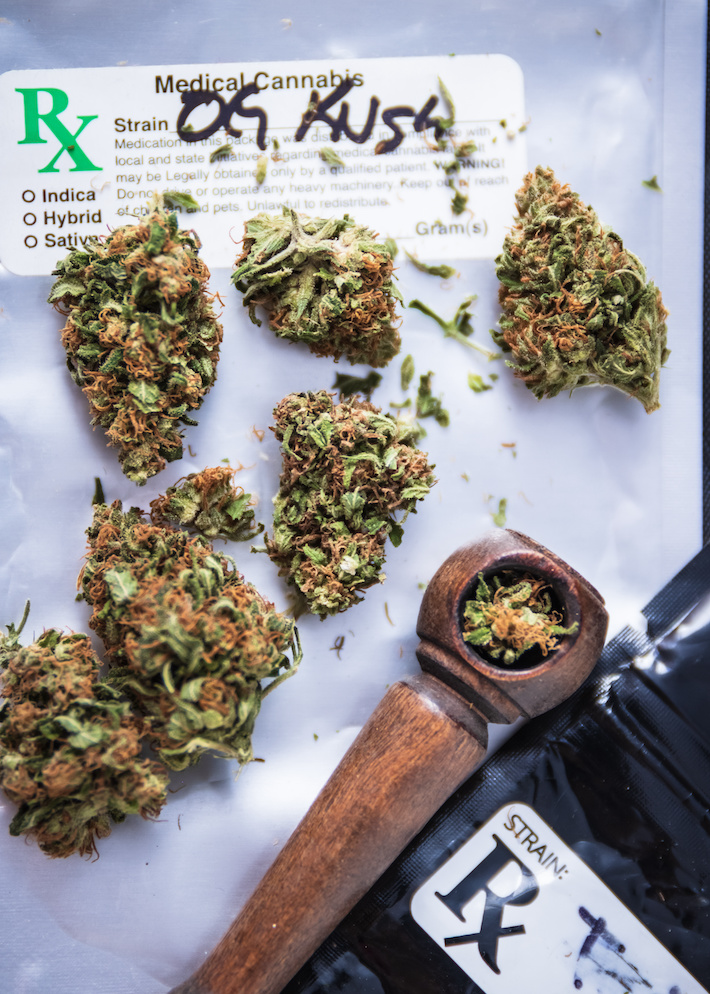
Prohibiting and removing delta-8 as a legal alternative treatment for some of the above conditions is worrying. Delta-8’s benefits are similar to delta-9 insofar as alleviating anxiety, promoting better sleep, reducing pain, remedying inflammation, improving digestion, and increasing appetite.
What’s more, delta-8 users experience fewer side effects when compared with delta-9 consumption. Over 60% of respondents experience no side effects from delta-8 consumption, and only 9% experience paranoia, nausea, and sickness.
When asked to describe their overall experience with delta-8 products, users only have positive things to say:
- “Helps with nausea.”
- “Milder high but still got me stoned.”
- “Delta-8 helped me sleep and feel more refreshed in the morning. It also really relaxes me and makes me worry-free. No paranoia. Great for my anxiety and depression.”
- “Very smooth and great for pain relief.”
- “Helps with pain and sleep.”
Why delta-8 prohibition hurts anxiety sufferers
Anxiety disorders are the most common mental health problem in the US, affecting 40 million. Benzodiazepines, such as Xanax and Klonopin, are widely prescribed to anxiety disorder patients to help relieve their debilitating symptoms.
Unfortunately, benzos are highly addictive and can cause a multitude of unwanted side effects and withdrawal symptoms. The main withdrawal symptoms are heightened anxiety, hypersensitivity, dissociation, hallucinations, and grand mal seizures, some of which last for weeks or even months as the drug begins to leave the body.
However, switching from benzos or other prescription anti-anxiety drugs to delta-8 THC is a potentially safer, more enjoyable experience. Not only is delta-8 a potent anxiolytic with far fewer side effects, but it’s also non-addictive and causes no significant withdrawal symptoms.
Why delta-8 prohibition hurts insomnia and other sleep disorders
Roughly 70 million Americans suffer from a sleep disorder. Insomnia is the most common. Approximately 30% of American adults live with short-term sleep problems, while 10% live with chronic insomnia. The main contributors to short or long-term insomnia include physical pain, depression, stress, bipolar disorder, and consumption of certain medications or substances.
Sedative-hypnotics are commonly prescribed to insomnia patients. One of the most common classes of sedative-hypnotics is barbiturates, which depress the central nervous system, resulting in sedation. Barbiturates include amobarbital, butabarbital, and pentobarbital. Prolonged use of these prescription sleep aids can cause physical dependence and addiction. Even in low doses, they can cause an overdose or death.
Users replacing sedative-hypnotics with delta-8 are at a greater advantage. Delta-8 is similar to delta-9 insofar as being a decent sleep aid, especially when combined with other sleep-promoting cannabinoids such as CBD and CBG.
Delta-8 is also not known to cause addiction, physical dependence, withdrawal symptoms, harmful side effects, overdose, or death, meaning it’s a potentially safer alternative to prescription sleep aids.
Why banning delta-8 hurts pain and inflammation sufferers
Chronic pain and inflammation affect approximately one in five people across the US. The most common causes of chronic pain and inflammation are arthritis, cancer, and a serious physically traumatic event.
When faced with long-term moderate-to-severe pain and inflammation, doctors typically prescribe opioids such as oxycodone and hydrocodone, both of which are highly addictive and can result in serious health complications and withdrawal symptoms.
Across the US, opioid misuse and addiction affect over 2 million Americans. In 2019, roughly 50,000 people died from an opioid-related overdose. While delta-8 THC isn’t commonly known for treating opioid addiction, its ability to induce therapeutic benefits similar to delta-9 makes it a viable addiction treatment option.
And since hemp-derived delta-8 is more accessible, especially in US states where obtaining high-delta-9 marijuana requires a valid qualifying condition and a subsequent medical marijuana card, statewide bans prevent self-medication with less addictive delta-8 products. At the very least, it prevents them from having a choice.
Are consumers worried about the safety of delta-8 THC products?
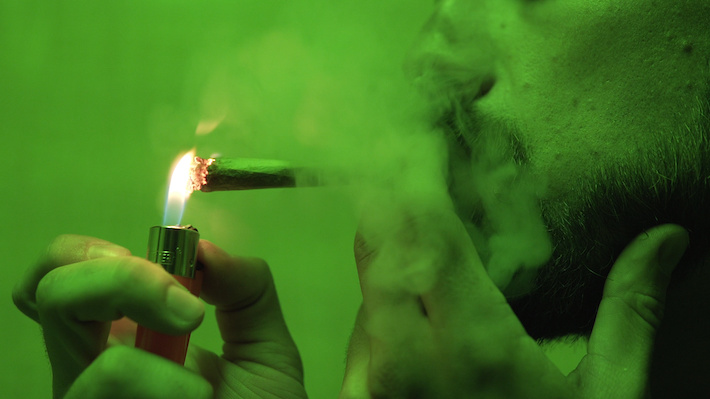
Roughly 48% of our survey respondents say they feel entirely safe buying delta-8 products online or through physical retail stores. Just over 25% say they’re slightly skeptical and cautious of purchasing delta-8 products and a further 20% are very careful of delta-8 product safety and purity. The remaining respondents answered, “I don’t care”.
Are consumers right to put their trust in delta-8 products?
While there’s a seemingly high level of trust surrounding the safety and purity of delta-8 products, don’t be mistaken. Delta-8 THC products exist in a largely unregulated industry. Incorrect labeling and manipulated Certificates of Analysis (COAs) are two of the biggest problems, placing consumers at risk of consuming bogus, harmful, and potentially life-threatening products without even knowing it.
Delta-8 product mislabelling common in the industry
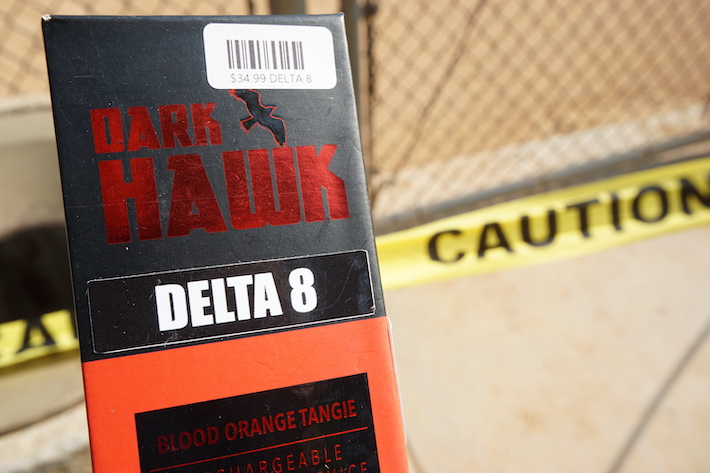
In CBD Oracle’s recent lab study on 51 hemp-derived delta-8 products in the US, 76% contained more than 0.3% delta-9 THC, averaging roughly 500 times higher than the legal limit. One delta-8 product carried more than 23% delta-9 THC, which is 7700% above the federally legal limit. This delta-9 percentage is enough to cause an uncomfortable high with potential side effects, including paranoia, anxiety, fear, nausea, vomiting, and hallucinations.
Manipulated Certificates of Analysis (COAs) do occur
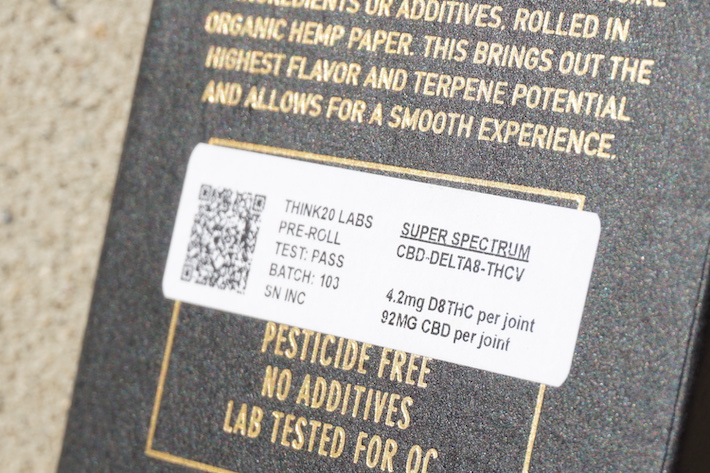
Worse still, two delta-8 companies doctored and manipulated their COAs. While two companies might not seem like a big deal — it is.
COAs are essential. They’re documents issued by independent laboratories specializing in cannabis testing after analysis is complete. They provide in-depth insight into the delta-8 products you purchase, showing any harmful contaminants, impurities, or toxins present in the extract and ensuring the right amount of delta-8 and delta-9 is in there.
When delta-8 brands choose to manipulate COAs, they’re essentially lying to unsuspecting consumers, which is a huge red flag in and of itself. What’s even more worrying is consumers could be ingesting products with high levels of heavy metals, mycotoxins, or residual solvents, all of which can pose serious health risks.
All is not lost
Despite evidence of COA manipulation in the delta-8 industry, the presence of impurities and contaminants is not quite as common as once believed.
CBD Oracle tested eight delta-8 products from separate delta-8 vendors. None carried detectable pesticide, heavy metal, mycotoxin, residual solvent, or microbial levels, indicating clean, safe, and pure extracts. However, only 17 out of the 51 companies CBD Oracle analyzed conducted tests for impurities and contaminants.
How should US states approach regulatory oversight over delta-8?
According to our survey, over 50% of respondents believe delta-8 should be regulated the same way as marijuana. In comparison, just over 45% say it should be regulated the same way as hemp-derived CBD products. Only 4% say delta-8 should be banned until more research is published.
How are US states regulating delta-8?
Some states such as Oregon, Connecticut, and Michigan regulate delta-8 the same way as marijuana and delta-9 THC under existing marijuana laws, only allowing them to be sold by licensed cannabis dispensaries to adults over the age of 21 (sometimes 18 with a medical marijuana card).
Conversely, other states, including Alaska and Delaware, provide no regulatory framework, opting to completely prohibit the use, possession, sale, distribution, and production of delta-8 products.
Does state regulation of delta-8 work?
State regulation of delta-8 does work insofar as weeding out the unethical, shady, and unsafe delta-8 manufacturers currently flaunting the unregulated nature of the industry.
We believe in placing delta-8 under a strict regulatory framework, which encourages producers and manufacturers to apply for licenses and place their delta-8 products through rigorous testing before being put to market, adding an extra layer of safety and transparency for consumers.
However, outright delta-8 product bans do not and will not work. States cannot reasonably expect consumers to simply shrug their shoulders and accept delta-8 prohibition without the risk of a growing black market. The same thing happened to marijuana during the war on drugs era. The same will happen to delta-8.
The issue with black markets is there’s absolutely zero quality control. No regulatory body (state, independent, or otherwise) has the opportunity to regulate the industry or the market. Delta-8 will simply be an ostracized substance and buried deeper underground, where safety, transparency, and quality standards cease to exist, placing users at far more risk than ever before.
Conclusion
Delta-8 THC prohibition isn’t just concerning; it’s life-changing for delta-8 business owners and consumers alike, and not in a good way.
Prohibiting delta-8 spells financial disaster for small business owners who rely heavily on delta-8 sales. As already mentioned, many Texas delta-8 companies interviewed by CBD Oracle in the past could lose out on 60% of their total revenue, forcing them to lay off staff or close altogether.
On the consumer side, banning delta-8 could push 53% of cannabis users away from legitimate delta-8 products and into a newly-formed black market filled with illegal, unregulated knock-offs.
Whichever way you look at this, widespread delta-8 bans aren’t helping the industry, nor are they keeping business owners or consumers safe.
Methodology
CBD Oracle’s survey was sent out to experienced delta-8 users via email on the 5th of October 2021. 117 survey participants living in all 50 US states, DC, and Canada responded and the data was collected over a two-week period before results were published by various media outlets.
Age breakdown of respondents
- 21-29: 32 (28%)
- 30-39: 37 (33%)
- 40-49: 25 (22%)
- 50-59: 12 (11%)
- 60+: 8 (7%)
Gender breakdown of respondents
- Male: 74 (65%)
- Female: 39 (34%)
- Prefer not to say: 1 (1%)
